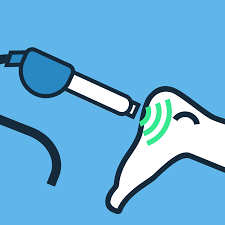How Many Carbohydrates Do I Need?
The amount of carbohydrates an individual needs can vary based on factors such as age, sex,

weight, physical activity level, overall health, and specific dietary goals. Carbohydrates are a primary source of energy for the body and play a crucial role in various physiological functions. Here are general guidelines for carbohydrate intake:
Recommended Dietary Allowance (RDA):
The Recommended Dietary Allowance (RDA) for carbohydrates is not established as a specific percentage of total daily calories, unlike the recommendations for protein and fat. Instead, the RDA provides a minimum amount of carbohydrates needed to ensure proper brain function.
- For Adults:
- The RDA for carbohydrates is set at a minimum of 130 grams per day for adults. This amount is based on the estimated amount of glucose needed by the brain to function optimally.
Factors to Consider:
1. Activity Level:
- Individuals with higher physical activity levels, especially athletes or those engaging in regular intense exercise, may require more carbohydrates to fuel their energy needs.
2. Metabolic Rate:
- Resting metabolic rate and overall energy expenditure play a role in determining carbohydrate needs. People with higher metabolic rates or those trying to gain weight may need more carbohydrates.
3. Health Goals:
- Specific health goals, such as weight loss, weight maintenance, or managing certain medical conditions (like diabetes), can influence carbohydrate requirements. For example, individuals following a low-carbohydrate diet for weight loss or managing blood sugar levels may have different carbohydrate needs.
General Guidelines for Macronutrient Distribution:
While individual needs vary, macronutrient distribution ranges can provide a starting point for general guidance:
- Percentage of Total Calories:
- Carbohydrates typically make up 45-65% of total daily caloric intake. The acceptable macronutrient distribution range (AMDR) for carbohydrates falls within this range.
- Minimum Carbohydrate Intake:
- Despite variations, it’s generally advisable that at least 45-65% of total daily calories come from carbohydrates.
Carbohydrate-Rich Foods:
Including a variety of whole, nutrient-dense carbohydrate sources is important. Good sources of
carbohydrates include:
- Whole grains (brown rice, quinoa, oats, whole wheat)
- Fruits (berries, apples, bananas, oranges)
- Vegetables (leafy greens, broccoli, carrots)
- Legumes (beans, lentils, chickpeas)
- Dairy products (milk, yogurt)
- Starchy vegetables (sweet potatoes, potatoes)
Monitoring Carbohydrate Intake:
1. Food Diary:
- Keeping a food diary can help you track your carbohydrate intake and identify patterns in your eating habits.
2. Portion Control:
- Be mindful of portion sizes to ensure you’re not consuming excessive calories from carbohydrates.
3. Quality of Carbohydrates:
- Focus on consuming complex carbohydrates from whole, unprocessed foods rather than refined sugars and processed foods.
4. Listen to Your Body:
- Pay attention to hunger and fullness cues. Adjust your carbohydrate intake based on your energy needs and overall well-being.
It's important to note that individual carbohydrate needs can vary, and dietary recommendations should
be tailored to specific health goals and considerations. Consulting with a healthcare professional or a
registered dietitian can provide personalized guidance based on your unique needs and circumstances.














































